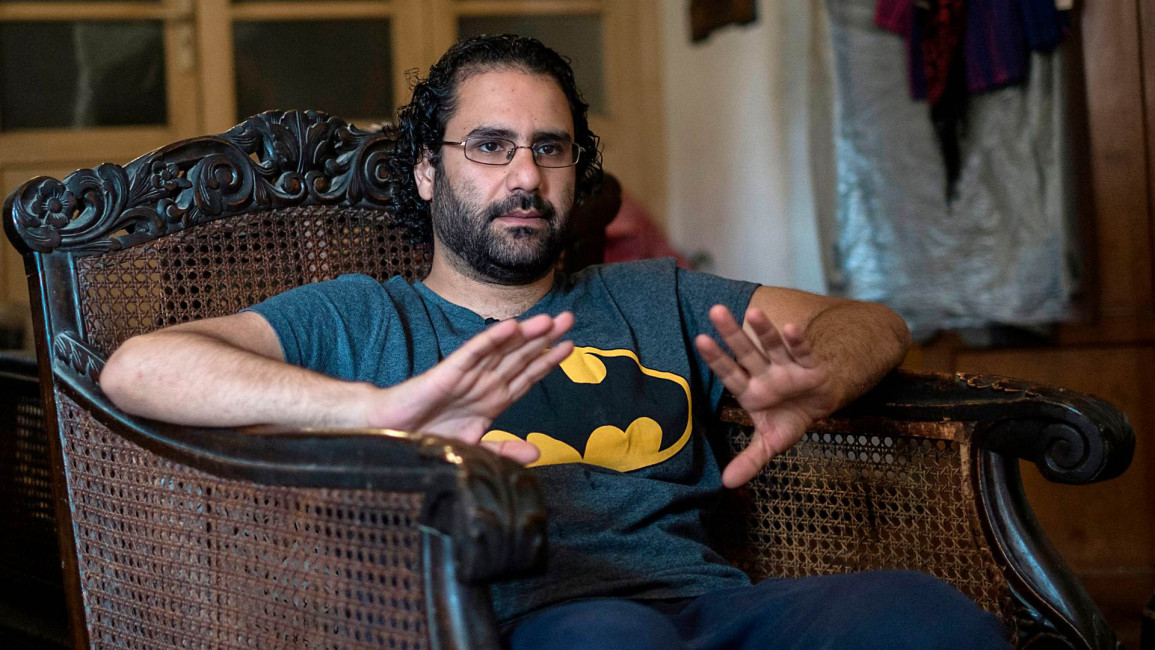Alaa Abdel-Fattah ends hunger strike following restart of Egypt court hearings
Abdel-Fattah, who has been in pre-trial detention in Cairo's Tora Prison since September 2019, is suspending his protest now that the courts have restarted detention renewal hearings, Seif's statement said.
It also said that he didn't want to worry his family during Eid.
Abdel-Fattah's mother Leila Soueif has made dozens of trips to the prison, attempting to deliver hygiene and medical supplies to her son, but has been turned away every time.
During her visit to the prison on Sunday, she was interviewed by Mada Masr journalist Lina Attalah, who was arrested outside the facility and taken for questioning. She was released several hours later.
Abdel-Fattah's family have also said that the conditions of his detention in the notoriously overcrowded and unsanitary prison are "the worst of all his previous detentions dating back to 2006".
Twitter Post
|
Despite pressure from human rights groups, Egypt has not reduced prisoner numbers as a precaution against a potentially catastrophic outbreak of coronavirus in its cramped facilities.
Abdel-Fattah, who initially rose to prominence during the pro-democracy uprisings in 2011, is one of thousands being held in pre-trial detention. He and many others were swept up in a mass arrest campaign following rare anti-regime protests in September last year.
The 38-year-old has not been convicted, but like many government critics, has been charged with "belonging to an illegal organisation" and "spreading false news".
Hearings are meant to be held every 45 days to renew the detention of pre-trial prisoners, who are only meant to be held for a maximum of two years without conviction.
However due to the coronavirus outbreak, hearings were postponed and detainees were barely permitted any contact with lawyers and family. Despite this, judges were still renewing the detention of thousands of inmates.
Human rights groups criticised the Egyptian courts for violating basic due process guarantees, saying many of the inmates should not have even been arrested in the first place, and that many had been held for longer than the two-year limit.
Follow us on Facebook, Twitter and Instagram to stay connected



